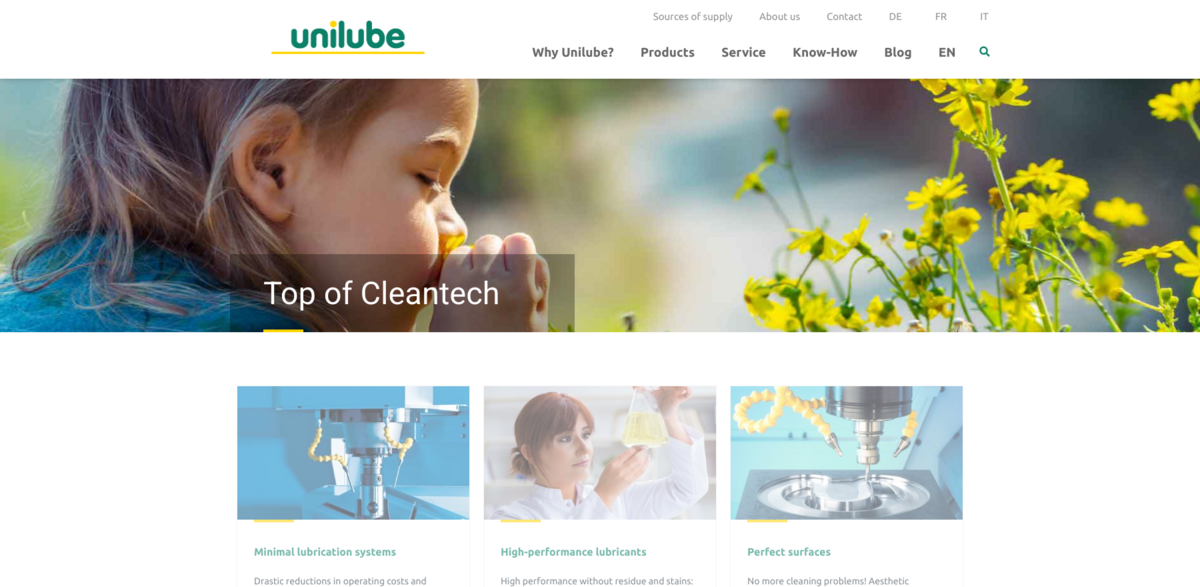What is Unilube AG All About?
Unilube AG is a family-owned company that’s been around since 1989, based in Kreuzlingen. They specialize in minimal quantity lubrication — a fancy way of saying they focus on using just the right amount of lubricant to get the job done without waste. Their mission? To develop economically and ecologically sustainable products that stand out worldwide. The company’s roots are deep in innovation, driven by founder Peter Brauchli’s vision to replace the old, wasteful flood cooling methods with something smarter: quasi-dry machining. It’s all about precision, efficiency, and protecting the environment.
The Main Benefit: Efficiency Meets Sustainability
Unilube AG’s technology offers a game-changing approach to lubrication in metalworking. Here’s what makes it stand out:
- Residue-free micro-lubrication that replaces costly, environmentally harmful flood cooling
- Significant advantages over traditional mist lubrication systems
- Highly economical and ecological, aligning perfectly with today’s climate concerns
- Precise dosing of low-viscosity media, ensuring minimal waste
- Systems designed to operate reliably even after years of intensive use
- Market share goal: increasing minimal lubrication technology use from under 5% to over 50%
Pioneering Spirit and Innovation at Its Core
From day one, Unilube AG set out to revolutionize the way lubrication works in machining. The goal was clear: develop a new technology for residue-free micro-lubrication that could replace the old flood cooling methods. Thanks to the technical expertise and visionary leadership of Peter Brauchli, this ambitious project quickly turned into market success. The company’s pioneering spirit is evident in their continuous research and practical advancements, which have helped them gain a significant technical lead in micro-dosing and micro-lubrication film application.
A Groundbreaking Breakthrough for the Industry
The potential of Unilube’s technology became clear early on. It offers a much-needed alternative to traditional mist lubrication systems, which often come with environmental and economic drawbacks. In today’s climate-conscious world, this technology isn’t just innovative — it’s essential. It’s the most ecological and economical method for machining metallic materials, making it a true breakthrough that benefits both industry and the planet.
Unique Market Position and Expanding Applications
Unilube AG holds a unique spot in the market as the only provider of residue-free consumption lubrication technology. Their minimal lubrication systems don’t just replace conventional flood cooling methods — they do so with a level of precision and efficiency that’s hard to beat. These systems are used wherever a glide or protective film is needed to eliminate friction or contact effectively. Their expertise in dosing low-viscosity media precisely is one of their core strengths, allowing them to expand their range of applications continuously.
Project Impact: Aligning with Sustainable Development Goals (SDGs)
- SDG 9: Industry, Innovation, and Infrastructure — advancing sustainable industrialization through innovative lubrication technology
- SDG 12: Responsible Consumption and Production — promoting minimal use of lubricants and reducing waste
- SDG 13: Climate Action — contributing to lower environmental impact in metalworking industries
- SDG 15: Life on Land — reducing pollution and protecting ecosystems by minimizing harmful lubricant runoff
Sustainability Commitment and Company Culture
“Earn by serving” isn’t just a motto for Unilube AG — it’s a way of life. Since its founding, the company has been committed to offering ethically sound and sustainable technologies. They take responsibility for future generations seriously, striving to operate in harmony with the environment. Their vision is bold: to increase the market share of minimal lubrication technology from less than 5% to over 50%. This commitment ensures that the industry not only advances economically but also contributes positively to the protection of people and the planet.


















